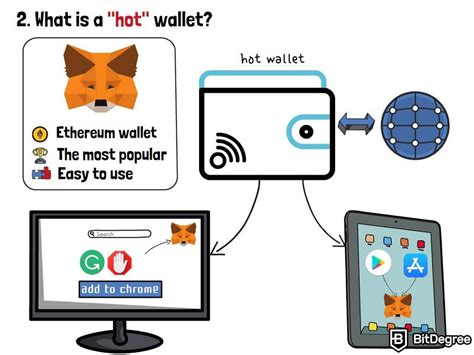Metamask: What is the Web3 approach to storing secret tokens (for example, when need to store the local salt for commit/reveal pattern)?
Web3 approach to secret storage of tokens: guide
The Web3 approach revolutionizes the way we store and manage secret tokens, especially when it comes to confidential information, such as salt values. In this article, we will examine what WEB3 has to offer in the field of storing secret tokens, including local alternatives.
What are web3 tokens?
Web3 tokens represent a new era of digital assets, enabling users to send value and make transactions without the need for intermediaries such as centralized exchanges (CEX). These tokens often use cryptographic techniques such as public key encryption and hash to ensure safe and decentralized transactions.
Local storage problem:
When it comes to storing secret tokens locally on the user’s device, there are several problems:
- Risk of security : Storing confidential information, such as salt values directly on the client’s side (i.e. as part of local storage) may lead to data violation or unauthorized access.
- Interoperability : Various Web3 platforms and wallets may require separate storage mechanisms, which causes programmers to be difficult to create trouble -free user experiences.
Web3 approach:
To solve these fears, web3 approaches offer innovative solutions for storing local tokens:
- This allows you to safely store and send data between blockchain nodes.
- Homorphic encryption (he) : provides a safe way to calculate the surgery of encrypted data, ensuring that confidential information remained confidential, even if it is stored locally.
- Zero Zero-Hash signatures

: Zero-Hash signatures allow users to store secret tokens without storing raw data. Instead, they can use a brief identifier for access management and transaction authorization.
Alternative storage mechanisms:
When local storage is not feasible or desirable (e.g. in the case of mobile applications), web3 approaches offer alternative storage mechanisms:
- Blockchain -based wallets : Web3 wallets, such as Metamask, Secret tokens in local browser cache (i.e. in the browser magazine). This ensures a trouble -free user experience and ensures safety via ZKP or ON.
- Decentralized storage services : decentralized storage services, such as infura or alchemy, offer safe and scalable storage solutions for the web3 application.
Application:
Web3 approaches have revolutionized the way we store secret tokens locally. Using evidence of zero knowledge, homomorphic encryption and Zero-Hash signatures, programmers can create trouble-free users’ experiences that ensure the security and confidentiality of confidential data. When local storage is not possible, alternative storage mechanisms provide a safe and scalable solution for the web3 application.
Recommendations:
In the case of programmers building Web3 applications, consider implementing one or more of the following activities:
- Zero-Many Libraries (ZKP), such as ZXP or ZKSNF
- Homorphic encryption (he) such as Hive or Ledger
- Libraries of zero signatures (ZHS), such as ZHS SDK
By adopting these approaches and alternative storage mechanisms, developers can create solid and safe web3 applications that certainly store secret tokens.
Additional resources:
- Metamask: Popular browser portfolio for the Web3 application.
- Infura: Decentralized mass storage service for the web3 application.
- ALCHEMY: a programming platform based on blockchain, which offers safe and scalable storage solutions.
